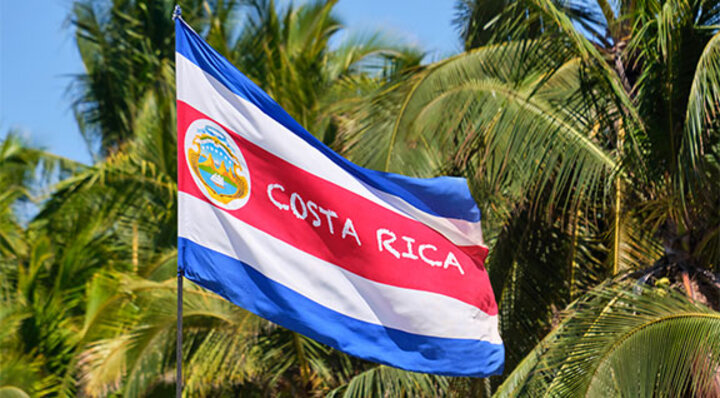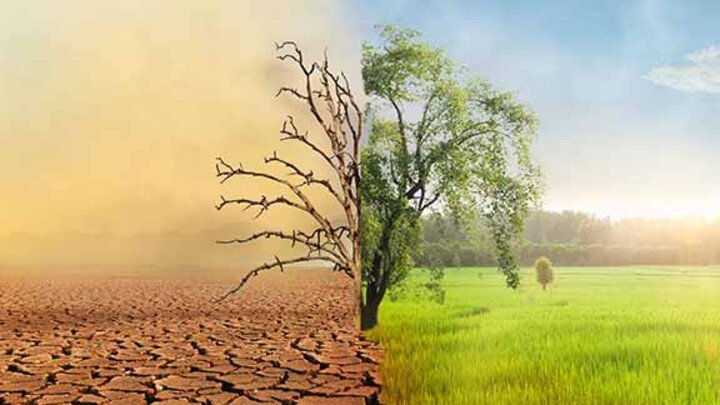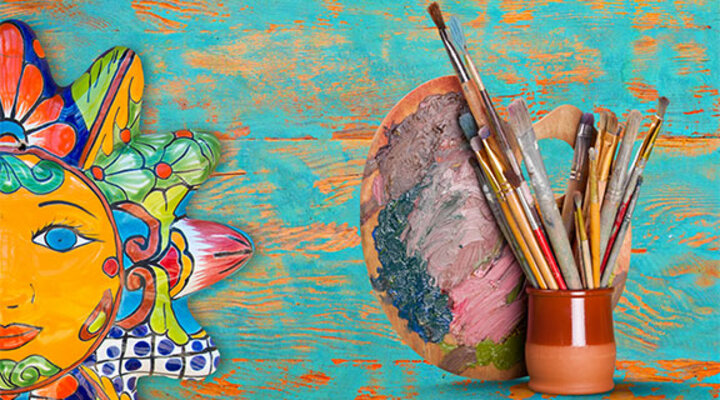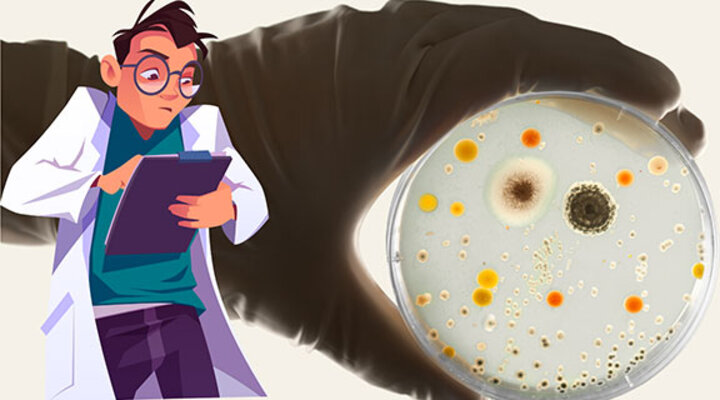The following 298H seminars are 3 credit hour classes. ACE credit is noted by each course. Enrollment in these courses will follow regular University enrollment procedures and occur on a first-come, first-served basis in accordance with your assigned priority registration times.
Previous semesters' courses
Summer 2024

INTERDISCIPLINARY/EDUCATION ABROAD
Costa Rica: Striving for Affordable, High-Quality Healthcare for All
| Requires Permission and approval for Education Abroad Program | Section 001 | Web Conferencing 9:00am-11:00am, 5/20-5/22 Travel Abroad, May 25-June 8 Final work due: June 14 |
| Costa Rica! | Dr. Erin Sayer & Dr. Didier Mena | ACE 9 |
In this course, we will explore and examine the healthcare system in Costa Rica. The International Center for Development Studies (ICDS), based in Costa Rica, will arrange lectures, site visits, observations, community work sessions, and cultural activities to provide students with in-depth content from local experts. Students will learn about the public-private model of healthcare and equity, healthcare management and case studies of healthcare services, and differences of healthcare systems in US and Costa Rica (including in Latin America as a whole). In addition, students will visit a local hospital and a clinic to observe and learn about how the medical facilities operate and challenges they are facing. From the on-site lectures and the first-hand observation and learning opportunities about the healthcare system in Costa Rica, students are stimulated to compare the healthcare system differences, strengths and challenges they are facing, future directions of the healthcare systems between US’s and one in Costa Rica.
Fall 2024

189H (BIOLOGICAL SCIENCES)
Armageddon or Cli-Fi? Climate Change and the Future of Life on Earth
| 189H | Section 006 | Tu/Th 3:30-4:45pm |
| Knoll 258 | Prof. John DeLong | ACE 4 |
Greenhouse gasses generated by human activity are causing an increased frequency of extreme weather events, record-hot summers, and melting glaciers. The problem has seeped into our collective imaginations, generating numerous apocalyptic visions of the future and a widely felt climate anxiety.
Yet, the effect of climate change on life on Earth represents an enormous opportunity to understand nature in an integrative way. Heat, water, and other physical features of the environment (e.g., acidity, gases) have broad effects on physiology, and these effects ‘scale up’ to impacts on organisms, populations, communities, and even whole biomes. Changes in one species may affect another species or even the physical environment, causing ripple effects throughout natural systems. Thermal stress, among other changes, may drive evolutionary responses, further changing the make-up of ecological communities. Understanding the biological effect of climate change requires, at a minimum, some ability to connect the dots among processes and organisms.
In this course, we will strive to connect the dots and follow the likely trails of effect from adding CO2 to the atmosphere to changes in natural phenomena. We will map out a logical flow of consequences and investigate the evidence for steps along the trail. We will then integrate across effects to make educated guesses about complex but critical climate impacts on things that many people care about, like coral reefs, polar bears, and coffee, and things we worry about, like malaria and growing food.

INTERDISCIPLINARY/ART THEORY & PRACTICE
Art Against the Odds: Creativity in Troubled Times
| No.: **** | Section 004 | 3:30pm-4:45pm, MW |
| Richards Hall 14 | Prof. Sandra Williams | ACE 7 |
This class explores the value of the arts by inviting students to study art and creativity by learning about art created during times of duress and outside of traditionally-valued artistic avenues and by considering the significance of cultural preservation. Creativity is a necessary component to survival. Traditional education emphasizes the Western canon, old masters, and somewhat dense, difficult to understand, and, at times, alienates contemporary work, ignoring investigation of creativity and art making that resides outside of the traditional gallery-to-museum pipeline. For example, folk art is an overlooked and excluded field in higher education pedagogy. However, folk art is often incredibly relevant for how people live; its influence has incredible reach into cultural context and expressions, and it is often used as a social and political critique method. Similarly, creative mediums of self-expression like body art or drag performance are excluded from academic inquiries into art making. Yet, like folk art artifacts, they can communicate beliefs, values, and histories and provide society with tools for coping with problems. We will explore a range of arts created in troubled times as means of resistance and survival.

INTERDISCIPLINARY/COMMUNICATION STUDIES
Global Public Health Communications
| No.: **** | Section 005 | 12:30pm-1:45pm, TR |
| Knoll 257 | Prof. Satveer Kaur | ACE 9 |
This course is specifically designed for students interested in the study of public health communication from a global perspective. We will explore the range of health communication and strategic communication theories that underpin health messages, campaigns, and interventions from critical and cultural perspectives and approaches from around the world. We will learn how to critically examine and unpack how global health issues are framed, such as infectious disease outbreaks (COVID-19, Ebola), chronic diseases (e.g., heart health, diabetes), and health campaigns and interventions (e.g., vaccines). We will then study perspectives from public health and global health campaigns to understand the various communication principles and approaches in the design of these health campaigns. Finally, the course will unpack the role of colonialism and its influence on the practices, structures, and processes of global health communication. In doing so, we will develop global awareness of on how various socio-cultural factors influence the planning, development and execution of public health communication around the world.

INTERDISCIPLINARY/LAW/HISTORY
Bioethics and the Law
| No.: **** | Section 004 | 11:30am-12:20pm, MWF |
| Knoll 257 | Prof. Joann Ross | ACE 5 & 8 |
This course will focus on the fascinating cross-disciplinary domain where law, ethics, and science intersect. We will examine the nature of bioethics and its relationship to the law, key controversies that have driven the history of this field, and the range of applicable law (state, federal, and international). Much of bioethics focuses on an individual patient’s or research subject’s experience with health care (e.g., access to health care, physician-assisted suicide, reproductive technologies). But a growing and increasingly vital component of bioethics focuses on public health issues that are concerned with the health of populations or communities. While the class will revolve primarily around the experience of individuals, occasionally we will give attention to public health bioethics. We will examine where the line should be drawn between the state’s ability to protect public health and an individual’s liberty to act (and create risks) as they please.

PHYSICAL SCIENCES/INTERDISCIPLINARY
How to Build a Starship
| No.: **** | Section 007 | 2:00pm-3:15pm, TR |
| Knoll 257 | Prof. Nate Pindell | ACE 4 |
The Earth has been called the cradle of humanity. The only home that humankind has ever known. But are there circumstances that would force humankind to look to the stars as a last resort in the face of extinction? Could humanity become a multi-planet species? What are the current plans for such events? Now more than ever it is important to understand how science and STEM are used to make informed decisions in day-to-day operations and prepare for the future. This course is designed to be a “survey of STEM” in which individuals that may be unfamiliar with many topics in STEM can gain knowledge of the scientific method and the diversity of the disciplines. The course is also trans-disciplinary in nature. The intersection of STEM and non-STEM fields. How is art used in science? What is the science of art? These questions, and more, will be discussed at length in “How to Build a Starship.”

BIOCHEMISTRY/WRITING/INTERDISCIPLINARY
From the Lab to the Page: Writing as a Scientist
| Enrolling Requires Permission; Priority given to Biochem majors | Section 008 | 11:30am-12:20pm, MWF 11:30am-2:30pm, F |
| Beadle E106 (MW) Beadle N170 (F) | Prof. Karin Van Dijk | ACE 1; Subs for BIOC 205 |
UHON 298H, From the Lab to the Page: Writing as a Scientist is a 3-credit lecture and lab course designed to increase proficiency of sophomore-level biochemistry students in hypothesis-driven experimental design, basic biochemistry techniques, data collection and analyses, data presentation, and various types of scientific writing and presentation. The overarching scientific theme is antibiotic resistance and novel approaches to combat infectious disease. Students can expect the lecture component of the class to follow a discussion-based format with in-class problem solving and writing activities included (i.e. not a traditional lecture class). Some of the discussions and analyses will be centered on reading materials that range in difficulty from science journalism to technical articles from high-impact journals. One of the signature assignments will be the synthesis of a scientific review paper written in stages in an iterative process throughout the semester.